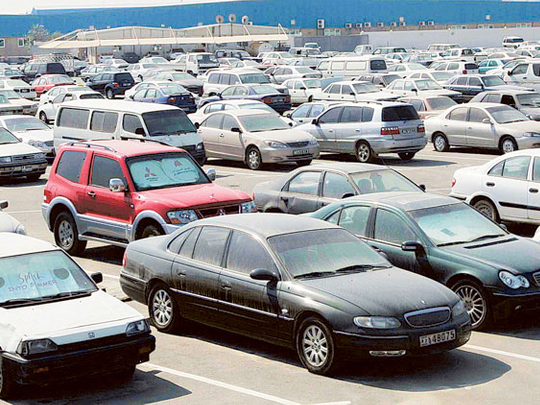
With the growing number of residents in the UAE and other Gulf Cooperation Council (GCC) countries changing cars more than other people change shoes, the region will have a massive pile of vehicles that can no longer run on roads by 2020.
Recent analysis by Frost & Sullivan released on Tuesday estimates that in six years, nearly 1.17 million vehicles in the GCC will come to the end of their life. In other developed areas like Ontario in Canada, around 600,000 vehicles are taken off the roads each year, generating 150,000 tonnes of waste that end up in the landfill.
While this could raise environmental concerns considering that retired vehicles can potentially harm the environment if they are not disposed of properly, analysts said this makes the GCC a good business ground for auto recycling.
Vehicle ownership in the region and across the world has been growing more than the population and has so far reached the 1 billion mark, thanks to rising household incomes, higher living standards and easier access to financing.
Given the growing rate of vehicle purchases in the region, automobile sales are forecast to grow at a compound annual rate of 5 per cent between 2014 and 2020, with the UAE and Saudi Arabia dominating the market at a combined share of 76.5 per cent.
What this means is that around 0.9 million tonnes of metal can potentially be recovered from auto recycling in the region by 2020. Globally, the corresponding figure is 58 million tonnes of metal. Automobiles are one of the highest recyclable-engineered goods produced, with recovery rates of almost 90 per cent.
“Almost 1.17 million vehicles will be reaching end of life (EOL) state by 2020 in the GCC, which makes the GCC countries highly potent for ELV recycling,” said Subhash Joshi, senior consultant, automotive and transportation practice, Middle East and North Africa, Frost & Sullivan.
“ELV offers a sustainable business model for recyclers and part re-manufacturers, which is presently very limited in the region.”
The auto recycling business is still at a nascent stage in the UAE, with the first plant established in Sharjah only last year.
However, what is stalling the growth of the recycling market in the region is the lack of unified regulations and infrastructure, as well as the limited attention to how the disposal of retired cars can impact the environment. There is also a lack of vehicle assembly and manufacturing in the region.
“The GCC governments have to advocate stricter laws with respect to ELV recycling and initiate appropriate incentives for all stakeholders involved in the process. Another important aspect is to initiate green marketing, to brand the automotive recycling industry as a professional organization selling green, economical and safe recycled parts,” Frost & Sullivan suggested.












